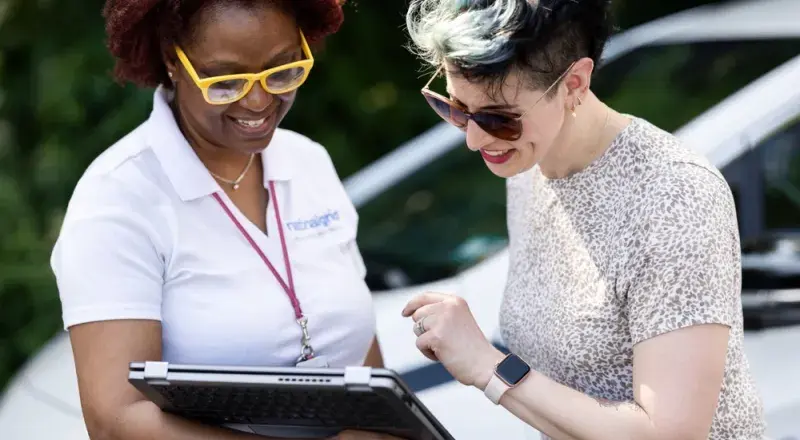SDG 7: Ensure access to affordable, reliable, sustainable and modern energy for all
SDG Target 7.1: By 2030, ensure universal access to affordable, reliable and modern energy services
SDG Indicator 7.1.1: Proportion of population with access to electricity
SDG Indicator 7.1.2: Proportion of population with primary reliance on clean fuels and technology
SDG Target 7.2: By 2030, increase substantially the share of renewable energy in the global energy mix
SDG Target 7.a: By 2030, enhance international cooperation to facilitate access to clean energy research and technology, including renewable energy, energy efficiency and advanced and cleaner fossil fuel technology, and promote investment in energy infrastructure and clean energy technology
Progress against our related RBC Commitments:
Our Actions Related to SDG 7
On Net Zero:
- We advocate for policy and regulation that supports climate action.
- We conduct replacements of leak prone pipe on our gas networks to reduce our gas emissions.
- We are working to eliminate fossil fuels from our gas network with renewable natural gas and green hydrogen.
On Green Investment:
- We build infrastructure to help enable the connection of clean energy sources to our networks.
Upgrading our networks to support the clean energy transition
On Safety, Reliability and Efficiency:
- We collaborate with various government and industry organisations to enhance resilience and energy network planning.
- We maintain robust crisis management, business continuity plans, and cybersecurity protocols to ensure energy security.
Challenges we’re facing:
There are several policy and regulatory dependencies related to the decarbonisation of the energy sector and the reduction of our emissions. Planning and permitting changes are necessary in both the UK and US, and policies that promote energy efficiency and the use of low carbon fuels will also be needed in the US. Without support from policymakers and regulators, it will be challenging to deliver our emissions reductions.
Our scenarios are not linear, reflecting our expectation that progress to net zero by 2050 will not be consistent. We expect natural gas to act as a transition fuel in the US until they choose to switch to electricity. Consequently, it’s possible we won’t see measurable reductions until the end of this decade or the early 2030s. Support will be required from policymakers and regulators to achieve this.
Instances and severity of extreme weather are increasing in the areas that we operate, in part due to climate change. These events make it more challenging to maintain the highest levels of reliability on our networks, despite our robust storm response procedures to minimise weather related interruptions.
Globally, there has been a rise in malicious cyber activity. We maintain strong cybersecurity protocols and take seriously the threat of cyberattacks impacting our operations.

